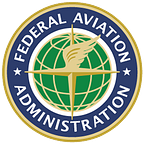The Downlow on DMEs
By Rebekah Waters, FAA Safety Briefing Magazine
The FAA has used designees since 1927, when it first appointed fifty doctors as aviation medical examiners (AME), but it wasn’t until the FAA Act of 1958, that legislation allowed a wide variety of designees to issue certificates. Designees, who act as surrogates for the FAA, provide quick service to the public and reduce overall government costs. Today, designated mechanic examiners (DME) ensure the competency and proficiency of aircraft maintenance personnel. From inspecting aircraft to issuing certifications, DMEs have an important role in keeping our airspace safe.
Serving the Community
DMEs are not FAA employees, but they have the authority to assess candidates to ensure they meet FAA standards by conducting oral and practical tests. Appointed by the FAA under 14 CFR section 183.25, a DME is responsible for examining and assessing the competency of individuals involved in the maintenance of aircraft. They are given special authority to administer testing to aspiring aircraft mechanics by the local Flight Standards District Office (FSDO). FSDOs decide the number of examiners needed. This number will vary depending on workload, need, and how many the office can manage.
Becoming a DME requires an extensive background in aviation maintenance, coupled with years of practical experience. The FAA requires DMEs to hold a valid aviation mechanic certificate and possess the technical knowledge and experience required for aviation mechanic certification. Applicants who wish to become DMEs are evaluated by a panel to make sure they are well qualified to do the job. DMEs must also demonstrate they have the necessary tools and equipment needed to administer testing. Whether assessing a candidate’s ability to troubleshoot complex aircraft systems or ensuring compliance with regulatory standards, DMEs are unwavering in their commitment to upholding aviation safety.
In FY 2023 there were 247 active DMEs. They conducted 17,142 tests and issued 14,451 mechanic certificates. DMEs set a high standard of airmanship and safety through personal example and represent the FAA and its workforce to the public in a positive manner. DMEs help to ensure that we continue to have the safest aviation system in the world.
Not Community Service
Like other FAA designees, DMEs are allowed to charge reasonable applicant fees for the services they provide to the public. They must make sure that the applicant understands all fees charged, including the fee for retesting after failure before they accept the airman certificate and/or rating application. Since DMEs are private individuals acting as representatives, they are only allowed to take payments from the applicant or on behalf of the applicant.
“There is projected to be an A&P shortage, and DMEs are needed to help with that shortage,” says Jennifer Lentz with the Airworthiness Delegation Section of the FAA’s General Aviation and Commercial Division. “Without DMEs, applicants won’t be able to complete the testing process to become a certificated mechanic.”
Learn more about becoming a DME at bit.ly/3UIbV8b.
Guardians of Safety
In the intricate tapestry of aviation safety, FAA designated mechanic examiners are the unsung heroes who ensure that every applicant has achieved a level of competency to be able to maintain and inspect aircraft safely and embody the highest standards of professionalism and expertise. Their contributions are indispensable in preserving the integrity and safety of the skies for generations to come.
Rebekah Waters is an FAA Safety Briefing associate editor. She is a technical writer-editor in the FAA’s Flight Standards Service.
